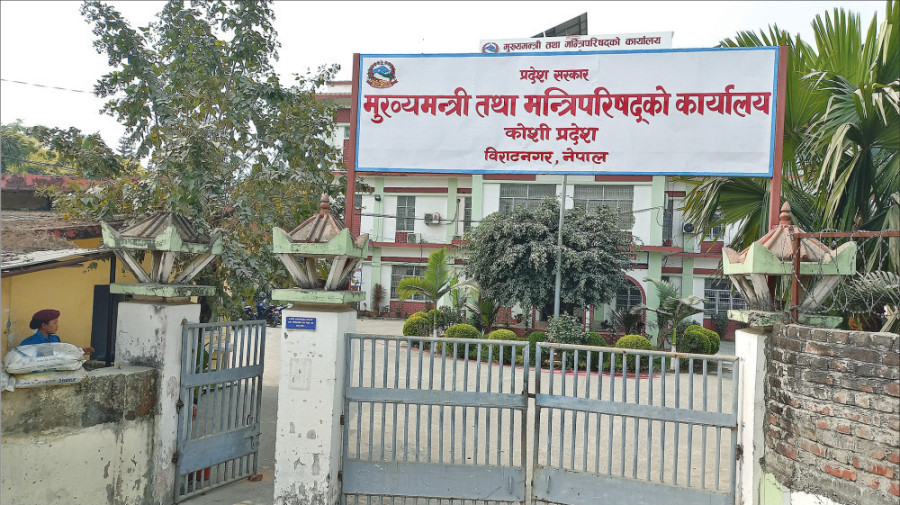Politics
With Koshi government losing majority, RPP holds the key to new Cabinet formation
Binod Rai, a Congress member of assembly, confirms talks with the Rastriya Prajatantra Party to bring it on board.
Nishan Khatiwada
The Koshi Province head has entrusted Chief Minister Hikmat Karki to run the government in a caretaker capacity, in accordance with the Article 169(3) of the constitution, until the formation of a new government. The Article states that even though the office of the chief minister falls vacant pursuant to clause (1), the same Council of Ministers shall continue to act until another Provincial Council of Ministers is constituted.
As the UML government in the province failed to win the vote of confidence on Friday, the Nepali Congress-led alliance has initiated negotiations with other parties to find out ways to secure a majority in the provincial assembly.
Given the tricky arithmetic in the provincial assembly, the most effective way to form a new government would be to bring the Rastriya Prajatantra Party (RPP) into their fold, say the Congress-Maoist alliance leaders.
Binod Rai, a Nepali Congress lawmaker in the assembly, said they are in talks with the Rastriya Prajatantra Party to bring them on board.
Some regional leaders have also reached Kathmandu for negotiations with the central leaders of the political parties.
“None of the political parties are ready for the midterm polls. The new government will now be formed in accordance with the Article 168(2) of the constitution,” said Rai. “If the RPP joins hands with us, we will have a comfortable majority to form the new government.”
The right-wing RPP, currently backing the UML in the province, has six lawmakers.
The party, however, is yet to discuss the matter formally.
RPP chief whip in Koshi, Ambar Bahadur Bista, said they haven’t held any discussion with the Congress-led alliance.
“But we believe that the province should not be pushed towards midterm elections,” Bista said. “We are waiting for the direction from the party’s central leadership.”
The backing of 47 members is needed to form a new government. But both the Congress-led bloc and the UML-RPP alliance have 46 seats each, adding to the difficulty of crafting a ruling coalition. In the 93-member provincial assembly, the UML has 40 seats, the Congress 29, the Maoist Centre 13 (including the Speaker, who can’t take a side in government formation), the RPP six, the CPN (Unified Socialist) four, and the Janata Samajbadi Party one seat. As such, the RPP’s numbers seem crucial for the Congress-led alliance to form the new government. Even for UML, its backing is a must, given the current political situation.
“Yes, we have the decisive votes in Koshi Province,” said Sagun Sundar Lawati, the RPP spokesperson. “The party will discuss the issue of the province, both at the centre and at the province level and then take a decision.”
The province head has been holding consultations with parties to make a call for the formation of the new government. If he invokes Article 168 (2) of the constitution, two or more parties should show their majority in the assembly to stake their claim to form the government. Excluding the Speaker, the Congress-led alliance is one lawmaker short for majority. UML has been warning that the Speaker cannot take sides while forming a government, while the Congress and its partners claim that the Speaker can vote.
If the two or more parties fail to garner a majority, the largest party UML will lead the government based on Article 168(3) of the constitution. The article states that in cases where the chief minister cannot be appointed under clause (2) or the chief minister so appointed fails to secure a vote of confidence under clause (4), the head of state shall appoint as the Chief Minister the parliamentary party leader of the party which has the highest number of members in the State Assembly. However, the chief minister thus appointed must prove his majority in the assembly within 30 days.
If even Article 168(3) fails to produce a government from the assembly, any lawmaker in the assembly can show the majority and lead the government. The chief minister thus appointed also has to get the vote of confidence. If all the options run out, the province will head towards the midterm polls.




 9.83°C Kathmandu
9.83°C Kathmandu














